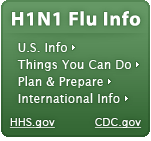Are minors capable of informed consent?
by Xavier Symons | 2 Apr 2016 |
In an article recently published (online-first) in the Journal of Medical Ethics, two UK-based doctors call for a sweeping review of adolescent consent protocols in British hospitals.
According to Dr Joe Brierley and Dr Victor Larcher of Great Ormond Street Hospital for Children, there is a disconnect between the complex case law on adolescent consent to treatment and the actual practice of considering the wishes of a minor.
“…Apparent distinctions between competence and capacity, consent and refusal may be difficult for clinicians to comprehend in their daily practice…The apparent divergence between the articulation of the common law and the daily experience of those providing healthcare to young people is troubling.”Brierley and Larcher contrast a 2014 case that came before the High Court – An NHS Foundation Trust Hospital v P – with a famous case on adolescent consent from 1985 – Gillick v West Norfolk and Wisbech Area Health. In the former the Court ruled that a depressed yet certifiably capable 17-year-old could not refuse life-saving treatment deemed to be in her “best interest”. This contrasts with Gillick, where a 16-year-old minor was deemed capable of consenting to the administering of contraceptives by doctors, even without parental consent.
Brierley and Larcher suggest there is a certain inconsistency in the way the law allows adults to make apparently irrational treatment decisions, yet limits what would appear to be more rational decisions by children:
“In adult medicine, sufficient importance is attached to the duty to respect the wishes of competent adults, even if they are held irrationally and run counter to an objective view of their welfare, that those choices will be honoured. Thus, an adult in P’s circumstances could have a refusal of rescue treatment honoured even if the consequences were an unpleasant death from liver failure. But unlike adults, in whom competence is presumed, children have to demonstrate capacity and achieve higher levels of competency than those required for adults. However, appeals to principles of fairness, justice and respect for persons would lead to the conclusion that young person who is competent to make a choice, whether voluntary informed consent or refusal, should have their choice honoured.”The authors reference a highly influential 2003 paper by University of Manchester bioethicist John Harris, where Harris argues vigorously in favour of respect for adolescent autonomy.

There’s probably no other country in which bioethics plays a greater role in politics than in the United States. Or at least one bioethical issue – abortion. The impending election is looking increasingly like a contest between fiercely pro-abortion Hillary Clinton and muddled anti-abortion Donald Trump.
This week Trump “misspoke” for the umpteenth time, but this time the topic was abortion. At first he declared that a woman who had an abortion should be punished, a position which he changed within the day. Now he says that the doctor should be punished.
The ensuing storm in the media meant that Trump has become the only candidate to unite pro-abortion campaigners and pro-life campaigners. Both are angry: the former because women’s reproductive rights are threatened; the latter because it distorts their message.
Trump has acknowledged that he is a “convert” to the pro-life camp, but as a spokeswoman for the Susan B Anthony List, a pro-life lobby group, said, “The most obvious thing about his comments yesterday is that he has not thought about these issues deeply.”
Better said: abortion is one of the many issues about which Trump has not thought deeply. Unfortunately, my hunch is that this controversy, like past controversies, will do him no harm at all in his race for the nomination. But November may be a different story.

Michael Cook
Editor
BioEdge
| This week in BioEdge | |
by Xavier Symons | Apr 02, 2016
What do bioethicists think of Donald Trump?by Michael Cook | Apr 02, 2016
"Ghoulish" proposal in the Journal of Medical Ethics criticised by British politiciansby Michael Cook | Apr 02, 2016
Belgium legislators forgot to publish an amendmentby Xavier Symons | Apr 02, 2016
Renewed interest in disability and philosophy has culminated in some spirited academic debateby Xavier Symons | Apr 02, 2016
Two UK doctors have called for a sweeping review of adolescent consent protocols.by Michael Cook | Apr 02, 2016
A US$5.7 million study begins soon amidst ethical uncertaintiesby Michael Cook | Apr 02, 2016
A former member of a euthanasia review board is horrified at what is happening in his countryby Michael Cook | Apr 02, 2016
A lesbian couple says that Down syndrome children should not be aborted.by Xavier Symons | Apr 01, 2016
a young Cambridge PhD candidate has reiterated his challenge the British medical establishment.BioEdge
Suite 12A, Level 2 | 5 George St | North Strathfield NSW 2137 | Australia
Phone: +61 2 8005 8605
Mobile: 0422-691-615
Email: michael@bioedge.org
New Media Foundation | Level 2, 5 George St | North Strathfield NSW 2137 | AUSTRALIA | +61 2 8005 8605
































No hay comentarios:
Publicar un comentario